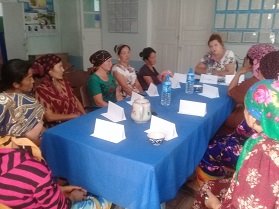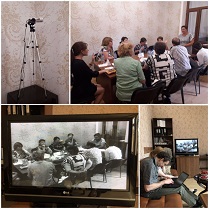

PROJECT TITLE: Strengthening Social Protection System in Uzbekistan Identifying the Demand for Social Protection in Uzbekistan
CLIENT: The World Bank
PERIOD: 2018
PROJECT AIM The objective of the consultant services is to carry out a qualitative assessment of (i) the process the Government agencies at central, regional and local level, as well as other agents involved carry out to reach, identify, select and register beneficiaries of social assistance programs, selected social services and activation programs; and (ii) the existing and emerging needs poor and vulnerable households face and the main strategies they use to address them.
DESCRIPTION OF ACTUAL SERVICES PROVIDED IN THE ASSIGNMENT
The specific activities the consultancy is expected to carry out are the following:
-Review the existing supply of social assistance and activation programs and based on their importance, make a proposal of the scope of the analysis.
-Review existing legislation and regulation related to the targeting process for the defined programs.
-Review available methodological and operational guidelines to conduct the targeting process in the defined programs.
-Review the targeting process (in each stage as described above) for the different programs, including specific roles and responsibilities of the different agents (Ministries, regional, district and Mahala authorities) involved, time and frequency to complete the process from initial contact with potential beneficiary to registration and notification, required documentation, internal processing and approvals, and flow of information between institutional agents (e.g., mahallas, PES, etc).
-Assessment of the eligibility criteria used for selecting and registering beneficiaries for selected programs, with particular emphasis for the identification, selection and registration of low income families or individuals.
The assessment is expected to be conducted through focus groups and structure interviews as follows:
-16 Focus groups (10-15 people per group) are expected to be conducted in at least 4 districts reflecting the diversity of the country in terms of urban/rural and level of development (at least 2 districts should be in rural and marginalized areas). In each district, about 4 focus groups are expected to be conducted (one per specific low income group: women, elderly, youth and low income workers).
Structure interviews should be conducted at central (Tashkent) and local level and should include community leaders, mahallas, Public Employment Services, local and regional authorities and selected central level policy makers and researchers.